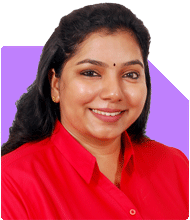My Age now 52 years , now how much sip one should do to i achieve 60 years 10 crores
Ans: Achieving a financial goal requires careful planning and disciplined execution. The objective of accumulating Rs 10 crores by the age of 60 through a Systematic Investment Plan (SIP) is ambitious yet achievable. Let's break down the key aspects involved in this journey, from understanding the nuances of SIP to evaluating different investment strategies.
Understanding Systematic Investment Plans (SIPs)
SIPs are a method of investing in mutual funds where you invest a fixed amount regularly. This approach leverages the benefits of rupee cost averaging and compounding.
Rupee cost averaging reduces the impact of market volatility by spreading out the investment over time. This means you buy more units when prices are low and fewer when prices are high. Over time, this can lead to a lower average cost per unit.
Compounding allows your earnings to generate more earnings. When your investments earn returns, and those returns generate their own returns, the growth of your wealth accelerates.
Setting the Right Investment Amount
To determine how much you need to invest each month to reach Rs 10 crores in 8 years, several factors need to be considered, such as the expected rate of return and the investment horizon. Although detailed calculations are beyond the scope, let's discuss the underlying principles.
Given your goal and timeframe, achieving such a significant corpus requires a substantial monthly investment. The expected annual return on your investments is a critical factor. Typically, mutual funds have historically offered returns in the range of 12-15% per annum.
Advantages of Actively Managed Funds
Actively managed funds are overseen by professional fund managers who make investment decisions based on research and market analysis. These funds aim to outperform the market or a specific benchmark.
One of the benefits of actively managed funds is their potential for higher returns. Fund managers actively seek out opportunities and adjust the portfolio in response to market changes.
Moreover, actively managed funds can provide better risk management. Fund managers can shift investments away from sectors or stocks that they believe may underperform.
Disadvantages of Index Funds
Index funds aim to replicate the performance of a specific index. While they have lower fees due to passive management, there are several drawbacks.
Firstly, index funds are limited to the stocks within the index. This limitation means they cannot take advantage of opportunities outside the index.
Secondly, index funds cannot outperform the market. They are designed to match the market's performance, minus the fees, which means they will always deliver slightly lower returns than the index.
Benefits of Regular Funds via Certified Financial Planners
Investing in regular funds through a Certified Financial Planner (CFP) provides several advantages over direct funds.
A CFP can offer personalized advice tailored to your financial goals, risk tolerance, and investment horizon. They can help you select the best funds, monitor your portfolio, and make adjustments as needed.
Moreover, CFPs can assist with comprehensive financial planning, including tax planning, retirement planning, and estate planning. This holistic approach ensures that your investments align with your overall financial plan.
Evaluating Different Investment Strategies
Diversification is a key strategy to manage risk and enhance returns. By spreading your investments across various asset classes, sectors, and geographies, you can reduce the impact of poor performance in any one area.
Equity mutual funds are a popular choice for long-term wealth creation. They invest in stocks and have the potential for high returns. However, they are also subject to market volatility.
Debt mutual funds invest in fixed-income securities like bonds and are generally less volatile than equity funds. They provide regular income and are suitable for risk-averse investors.
Balanced or hybrid funds invest in a mix of equities and debt, offering a balance of growth and stability. They are ideal for investors seeking moderate risk and returns.
Importance of Regular Reviews and Rebalancing
Regular reviews of your investment portfolio are essential to ensure it remains aligned with your goals. Market conditions, personal circumstances, and financial goals can change over time, necessitating adjustments to your investment strategy.
Rebalancing involves adjusting the proportions of different assets in your portfolio to maintain your desired asset allocation. This may involve selling overperforming assets and buying underperforming ones. Rebalancing helps manage risk and ensures your portfolio remains on track to meet your goals.
The Role of Discipline and Patience
Successful investing requires discipline and patience. It is essential to stick to your investment plan, even during periods of market volatility. Reacting impulsively to short-term market movements can derail your long-term financial goals.
Automating your investments through SIPs can help maintain discipline. By investing a fixed amount regularly, you can avoid the temptation to time the market.
Risk Management and Contingency Planning
Every investment carries some level of risk. It is crucial to assess your risk tolerance and invest accordingly. Diversification, as mentioned earlier, is a key risk management strategy.
Additionally, having a contingency plan is vital. An emergency fund can provide a financial cushion in case of unexpected expenses or market downturns. Ideally, this fund should cover 6-12 months of living expenses and be kept in a liquid and easily accessible form.
Tax Planning and Efficient Investing
Tax efficiency is an important aspect of financial planning. Different investments are subject to different tax treatments. For example, long-term capital gains from equity mutual funds are taxed at a lower rate than short-term gains.
A Certified Financial Planner can help you design a tax-efficient investment strategy. This may involve investing in tax-saving instruments, optimizing the timing of withdrawals, and taking advantage of tax benefits.
Staying Informed and Educated
The financial landscape is constantly evolving. Staying informed about market trends, economic developments, and changes in tax laws is crucial for making informed investment decisions.
Educational resources, such as books, online courses, and financial news, can help you enhance your financial literacy. Additionally, engaging with a Certified Financial Planner can provide you with insights and guidance.
Importance of Goal-Based Investing
Investing without clear goals can lead to suboptimal outcomes. Goal-based investing involves defining your financial goals and creating an investment plan to achieve them. This approach ensures that your investments are aligned with your objectives.
For instance, your goal of accumulating Rs 10 crores by the age of 60 is a long-term goal. Investing in equity mutual funds through SIPs is a suitable strategy for such a goal due to the potential for higher returns over the long term.
Evaluating Investment Performance
Regularly evaluating the performance of your investments is crucial. This involves comparing the returns of your investments against relevant benchmarks and assessing whether they are on track to meet your goals.
If your investments are underperforming, it may be necessary to make changes to your portfolio. A Certified Financial Planner can assist with this evaluation and provide recommendations.
Benefits of Professional Financial Guidance
Engaging with a Certified Financial Planner offers several benefits. They can provide personalized advice, help you navigate complex financial decisions, and offer ongoing support.
A CFP can assist with creating a comprehensive financial plan, selecting suitable investments, and monitoring your portfolio. Their expertise and experience can add significant value to your financial journey.
Recognizing the Importance of Financial Wellness
Achieving financial goals is not just about accumulating wealth. It is also about achieving financial wellness. This involves having a sense of security and peace of mind regarding your financial situation.
Financial wellness encompasses various aspects, such as having an emergency fund, managing debt, planning for retirement, and protecting against risks through insurance.
Final Insights
Accumulating Rs 10 crores by the age of 60 through SIPs is an ambitious yet attainable goal. It requires a disciplined approach, regular investments, and a well-thought-out strategy.
Engaging with a Certified Financial Planner can provide valuable guidance and support throughout this journey. They can help you navigate the complexities of investing, manage risks, and ensure that your investments align with your financial goals.
Remember, successful investing is a long-term endeavor. It requires patience, discipline, and regular reviews. By staying informed, diversifying your investments, and maintaining a focus on your goals, you can work towards achieving financial security and peace of mind.
Best Regards,
K. Ramalingam, MBA, CFP,
Chief Financial Planner,
www.holisticinvestment.in




























